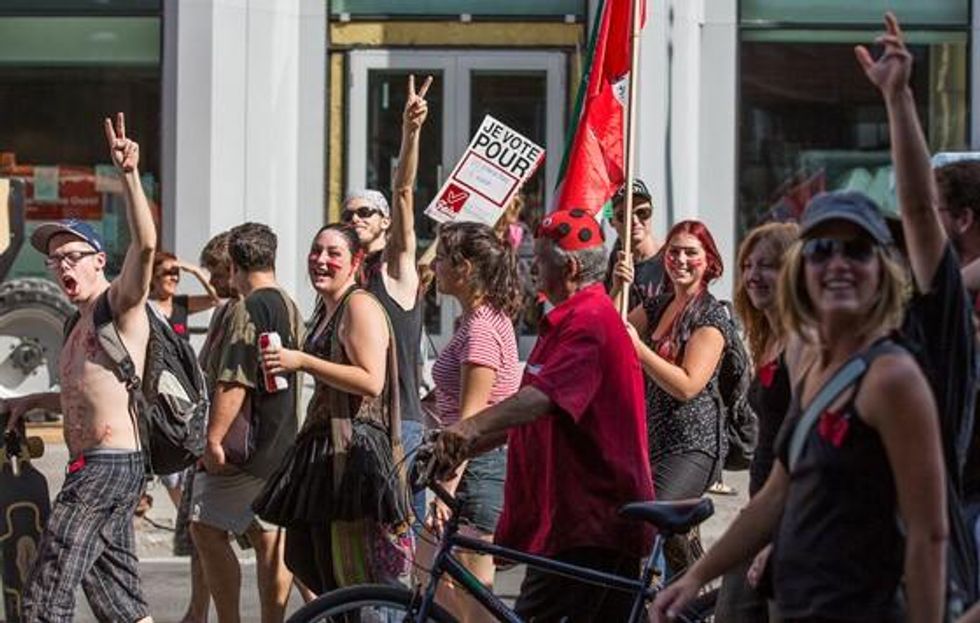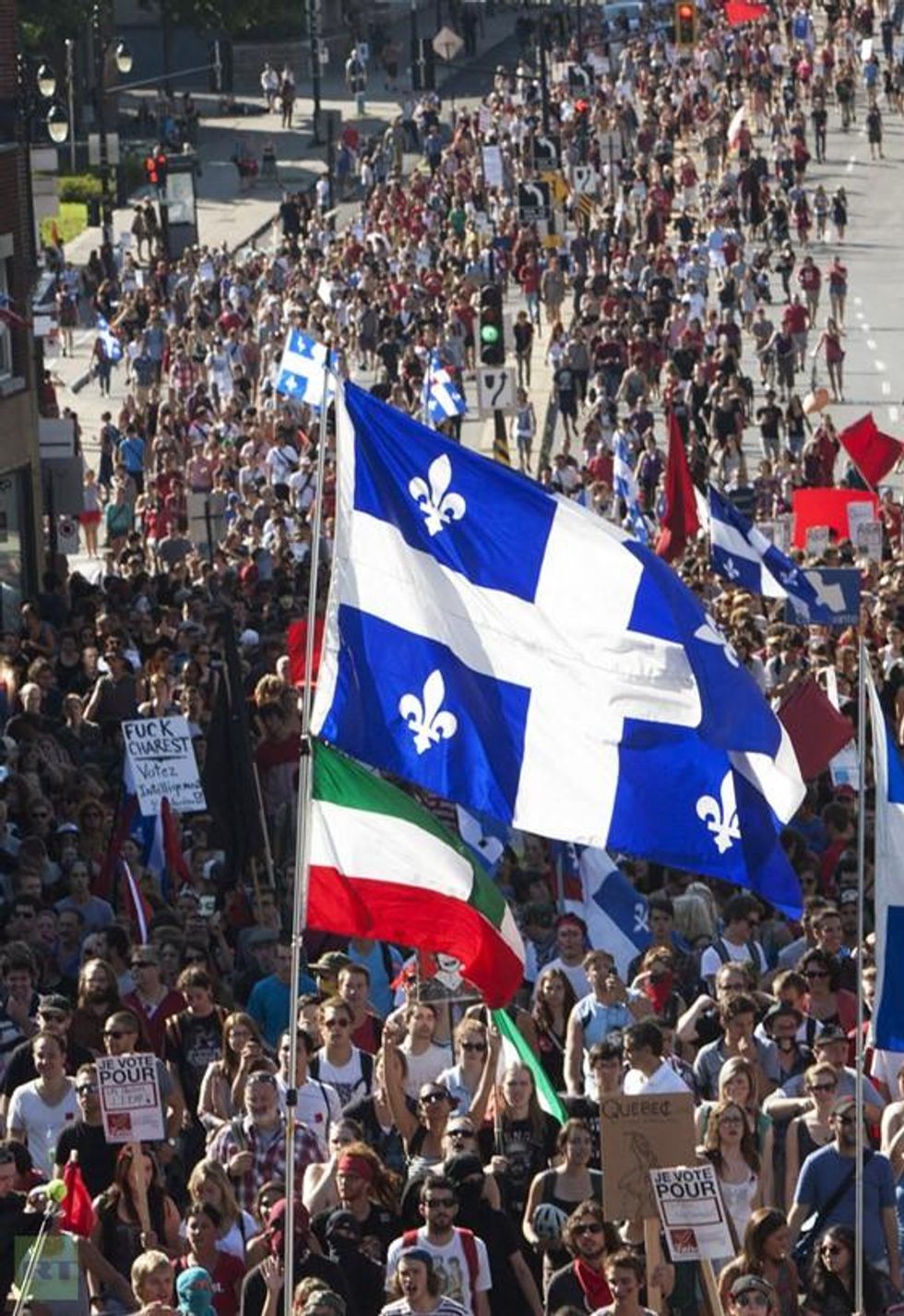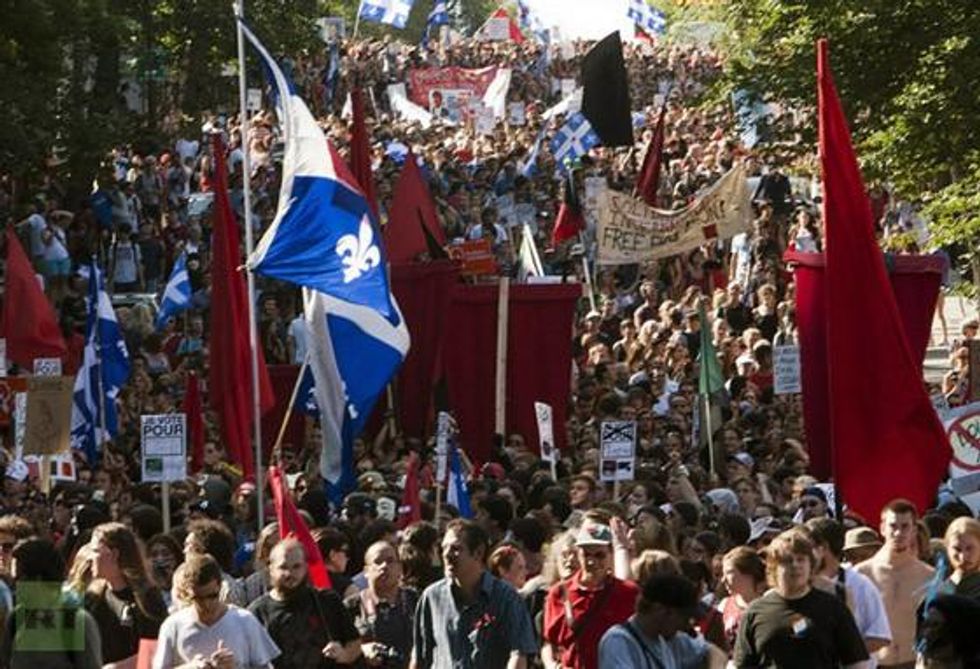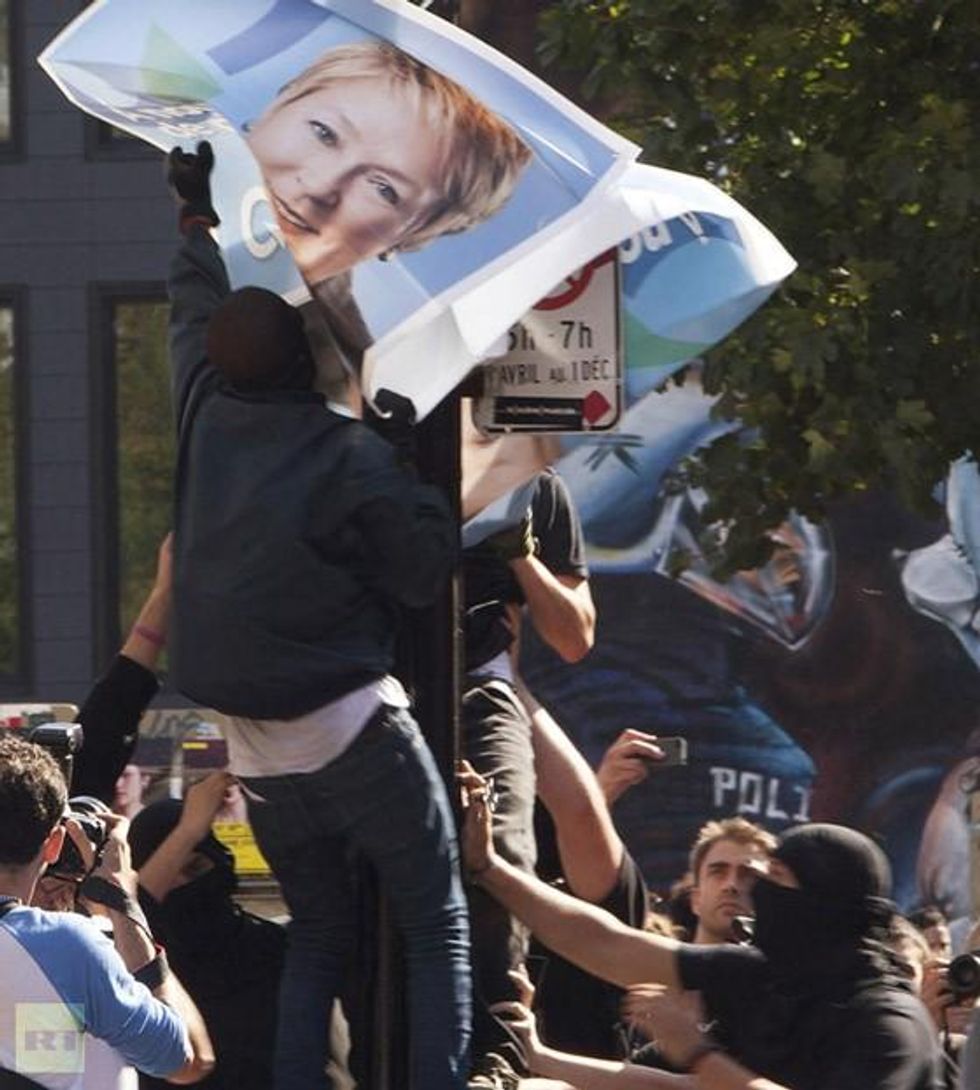Thousands of protesters marched against planned tuition hikes in Montreal, opposing the Liberal government of Premier Jean Charest, two weeks before Quebec's parliamentary elections. The students marched just as they have on the 22nd of every month, for the last six months.
Organizers of Wednesday's protest said it was the largest planned demonstration seen during an electoral campaign and that it signaled the revitalization of the protest movement.
"The people will vote to elect a new government and that new government will feel pressure from the students," CEGEP college philosophy professor Martin Godon told Agence France Presse.
Godon, 49, is a member of "Teachers Against Hikes."
Students "have learned a lot about democracy, civics and engagement, and that's worth all the diplomas they could receive," he said, hoping the lessons "will impact youth voters" for the September 4 vote.
The presidents of two student unions, the Quebec Federation of College Students (FECQ) and the Quebec Federation of University Students (FEUQ), Eliane Laberge and Martine Desjardins, condemned the Charest administration's plans.
"On September 4, citizens will remember how the Liberal Party has addressed the youth and people of Quebec," said Laberge, while Desjardins reiterated her call against voting for parties failing to support students.
The spokesman for the student organization CLASSE promised the students would continue striking in defiance of Bill 78. He said the action would persist during, and after, the election.
The group says about 43,000 students remain on strike -- which is about one-tenth of all post-secondary students in the province.
"The strike is continuing in many faculties and many departments and universities and it will continue afterwards," said Jeremie Bedard-Wien, the spokesman for CLASSE.
"What we've put forward for students is this idea of popular mobilization."
He said the current election -- and the avoidance of student issues -- only illustrates why many of the protesters distrust the traditional political parties.
"We recognize that the three main parties that can seize power haven't made much of a case in support of education," Bedard-Wien said.
"They haven't supported us much during the strike and we don't expect much from them at all -- and that is why we argue for sustained mobilization."
* * *
* * *
* * *
# # #







